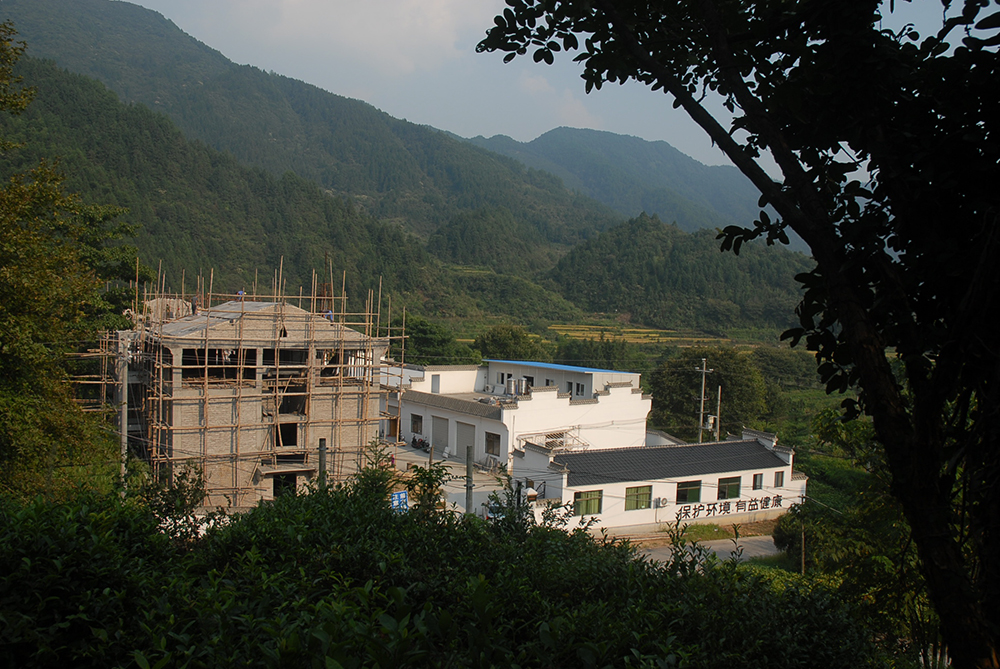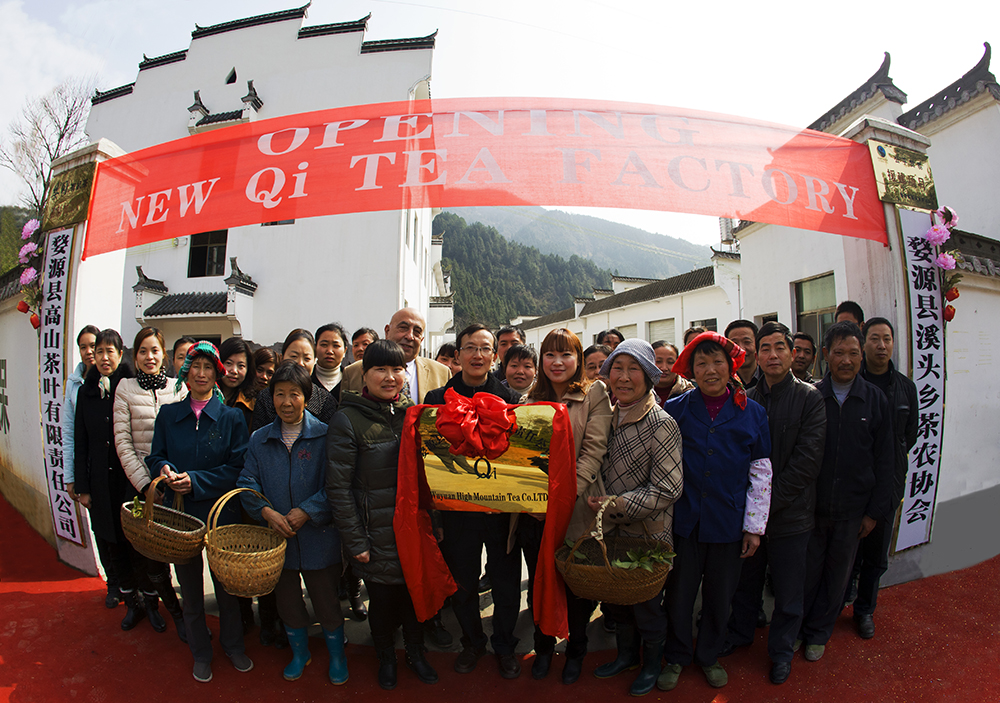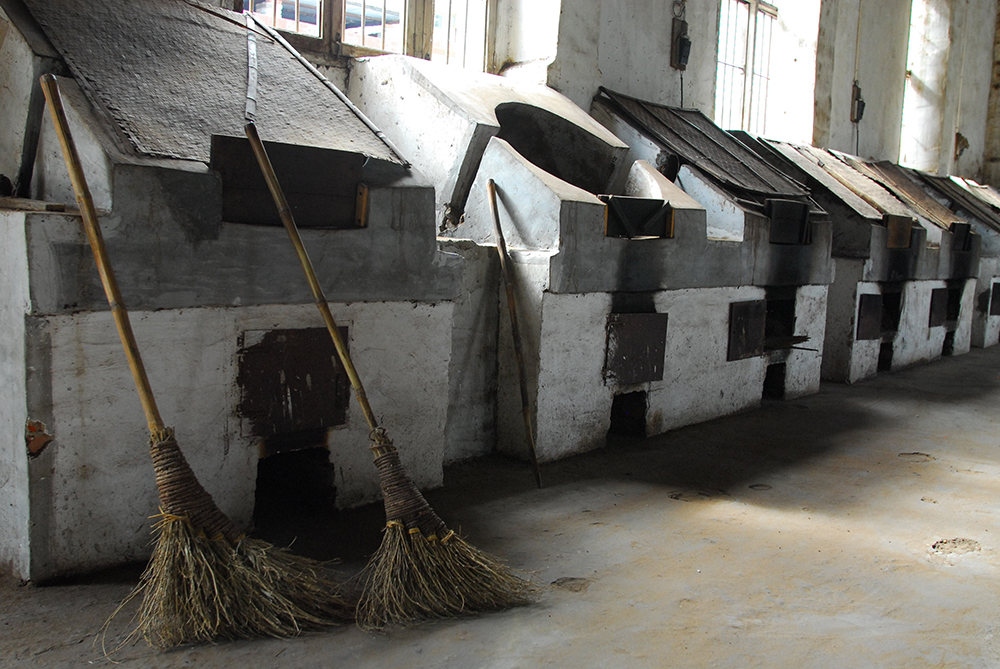Qi Fairtrade Tea: Xiaxi, China
Image: Unsplash
ALL THE TEA IN CHINA
CURATOR KARINA EASTWAY | MAKER QI FAIRTRADE TEA | INTERVIEW WITH CHENGENLIN, VICE CHAIRMAN OF FARMERS’ ASSOCIATION | PHOTOS CONTRIBUTED BY QI TEA | COUNTRY CHINA
In the mountainside village of Xiaxi, China, tea is being handpicked by local farmers as it has been since the Song Dynasty, over one thousand years ago. In the 21st century, the tea is making its way to the rest of the world: the only hint as to its history in the richness of its taste. SHIBUI & Co chats to Chengenlin, Vice President of the local farmers association who now produce the Qi organic green tea for Fairtrade Australia.
CAN YOU TELL US ABOUT THE HISTORY OF TEA PRODUCTION IN YOUR REGION?
Since the Song Dynasty, there has been tea production in our region, and generation by generation, the farmers continue to keep the tradition. In 1995 we started to produce and process the tea according to the organic standard. Our tea garden was certified organic (by ECOCERT) in 1998 and our association was Fairtrade certified (by FLO) in 2005.
CAN YOU EXPLAIN THE PROCESS OF TEA PRODUCTION PROCESS FOR US?
There are six stages in the process of Qi China green tea (camellia sinensis) before it is blended with the array of other organic ingredients that you will find in Qi Teas.
The steps in this process are: fresh leaves→tedding→fixation→cool→rolling→twisting→(cooling)→initial drying→ (cooling)→ full drying.
There are four villages including Xitou (Pronouned Sheetoh) that have tea processing centres where all of this processing is done. Once picked, the leaves are brought back to the closest local village processing centre where they are spread out on bamboo mats to dry for a few hours. (Qi Tea is still gently air-dried whereas it is common for this process to be done in some sort of drying machine).
Fixation is the process whereby the active enzymes are destroyed and the oxidization of the leaf is halted through baking the leaf. This baking preserves the characteristics of green tea including its appearance, taste and aroma and also importantly the catechin and other antioxidants that are of interest to scientists in the treatment and prevention of illnesses such as cancer. The fixation process also makes the leaves more pliable and easier to roll. Black tea is fully oxidized, which gives it a much darker colour and different taste and aroma.
The more common method of ‘fixation’ is pan-frying or steaming the leaf (in large industrial steamers) however baking the leaf generally produces a fuller flavour and so the Qi Tea Master has stuck to this method, which is traditional is the Wuyuan area.
Qi Tea leaves are left to cool before being rolled and twisted which preserves the chlorophyll of the leaf and hence the natural green colour.
Finally the leaves are taken to the central processing factory where they are crushed into small pieces, sorted and graded. Then they are blended with other ingredients and placed into tea bags, into packs and packaged up to be sent off around the world.
Wuyuan Green Tea has a tight knot shape and an enduring sweet fragrance. Its finely shaped, tender leaves produce a clear, yellow-greenish brew with a distinctive sweet, plum-like flavour.
There are two harvests; the main springtime harvest and the summer harvest of which most of the leaf is picked by the farmers and their families
WHY DID YOUR ORGANISATION BECOME FAIRTRADE CERTIFIED?
We had an English customer who wanted to buy Fairtrade tea and helped us to get the Fairtrade certification.
WHAT CHANGES DID YOU MAKE TO BECOME FAIRTRADE CERTIFIED?
There is minimum price for the tea, which meant the price we could get for our tea rose by 30%. Also my two daughters were supported by the Fairtrade Premium when they were enrolled in their college.
WHAT CHANGES HAVE YOU MADE TO THE WAY YOU FARM?
The farmers’ association bought a picking machine for us and a new machine for our first processing factory. They help by supplying organic fertilizer to us, and provide training for us in different topics related to our farming.
HOW HAS YOUR LIFE IMPROVED SINCE BECOMING INVOLVED WITH FAIRTRADE?
My two daughters have been supported by the Fairtrade Premium when they were accepted at college. Also the price for our tea rose by 30% because of the Fairtrade Minimum Price so we could get more income. Also I get paid by doing some work for the farmers’ association.
CAN YOU EXPLAIN THE CHANGES YOU HAVE SEEN IN YOUR COMMUNITY?
Our village road was improved by the Fairtrade Premium, the association put night-lights on the roadside. The farmers’ children are each supported by the Premium when they enrol in college. If someone is poor and badly ill, they could get supported by the farmers’ association.
CAN YOU DESCRIBE THE VILLAGE/AREA FOR US?
Our village is called Xiaxi, located in northeast part of Wuyuan Jiangxi China. Villagers mainly grow rice and tea. Our environment is very good with green hills and clean water, the air is very fresh. A lot of young people go outside to work in big cities, while their parents stay at home.
HOW MANY PEOPLE ARE PART OF THE COOPERATIVE?
There are 24 families part of the farmers’ association, with a tea garden area of 110mu (1hectare=15mu).
WHAT DOES THE FUTURE LOOK LIKE FOR THE COMMUNITY?
The community, I think, will be better and better. Our government now is building the beautiful countryside to improve the environmental, social and economic condition. And the farmers’ association also will continue to support our community on a social, economic and environmental basis. I think our community will have a bright future.
WHAT WOULD YOU SAY TO OTHER FARMERS WHO AREN'T INVOLVED WITH FAIRTRADE?
Please be active in joining in the Farmers’ Association, because it’s a big family to share a lot of things. Your children could be supported when they go to the college, and when you have difficulty you also could get help from the association. Also you could get a chance to be trained in tea technique, tea garden management etc. So please be our member and be involved in Fairtrade, it is worth it.





